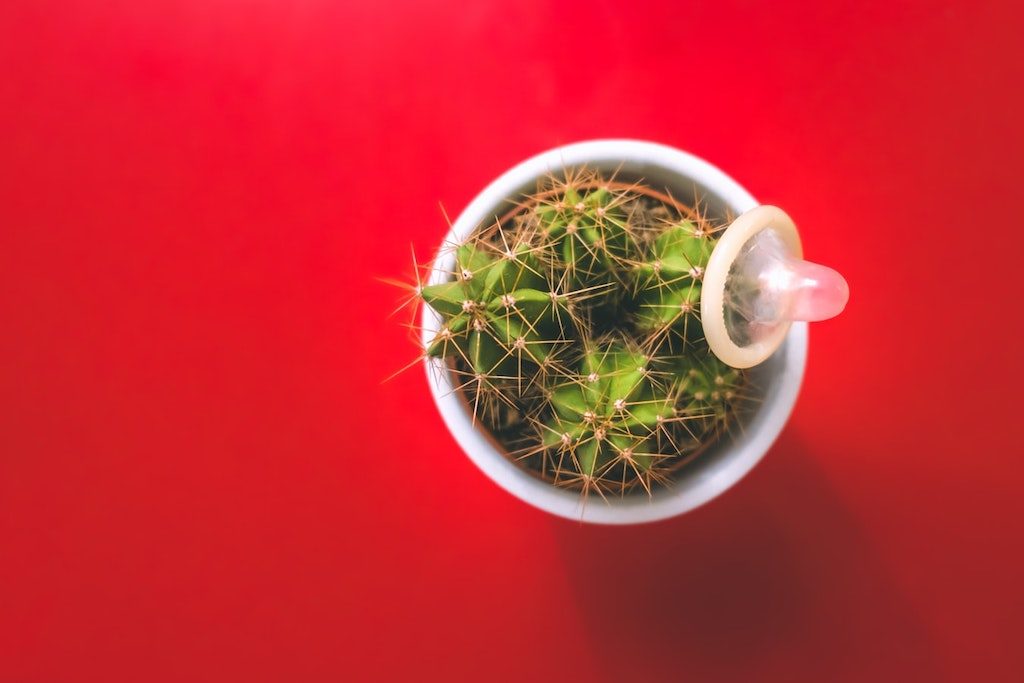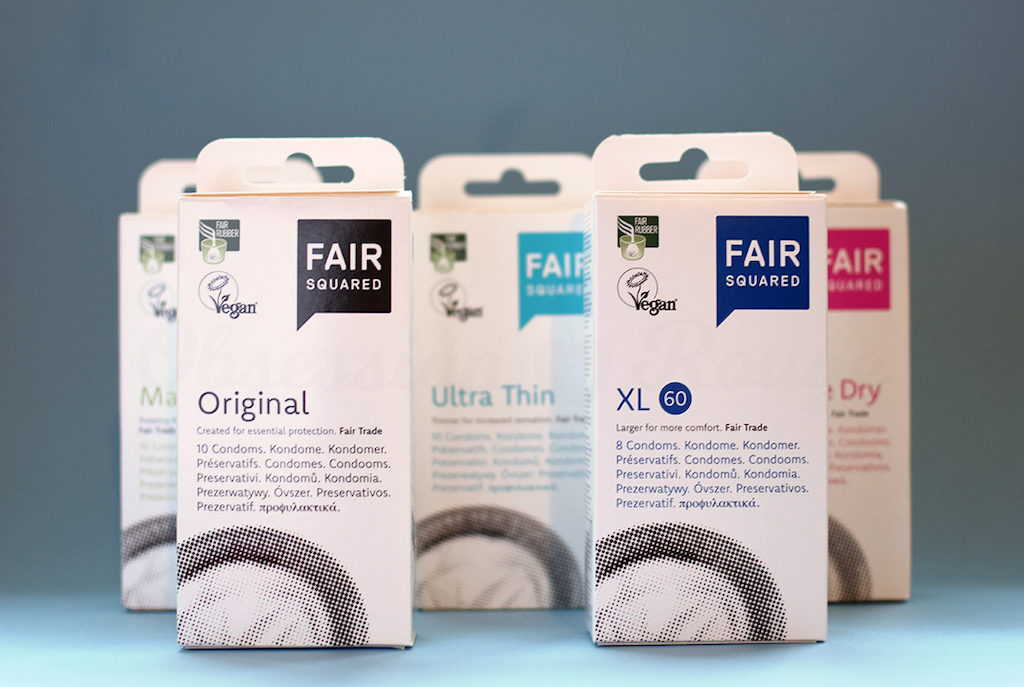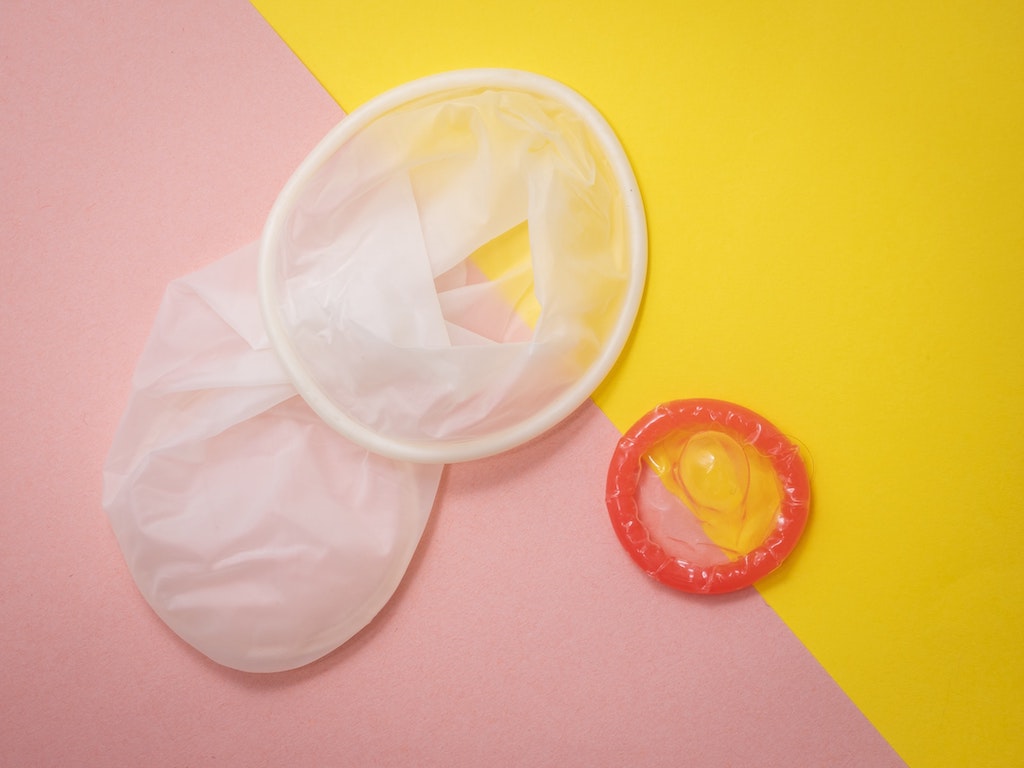5 Mins Read
Condoms help protect against pregnancy and many sexually transmitted infections (STIs), are relatively inexpensive and widely available for purchase. However, when it comes to being as conscious about our environmental impact in every aspect of our daily lives, it is important to address whether the use of condoms, which is by nature a single-use product, can contribute negatively to our already degrading planet. Are condoms eco-friendly?
With an estimated 5 billion condoms being purchased and thrown out each year, it is clear that condoms are a major source of waste that needs to be addressed. We know you might have questions, from what the true impact of using condoms are to what kinds of ethical and eco-friendly alternative products are available, so we’ve decided to help answer some of these questions.

How environmentally unfriendly are condoms?
Latex Condoms
Most conventional brands of condoms are indeed non-biodegradable, and all condoms must be thrown out after a single-use. This is because many brands have latex as an ingredient. Although latex can be naturally derived from trees, typical latex condoms are not manufactured with 100 percent pure natural rubber in order for condoms to be as thin and comfortable as possible. Instead, they may contain a blend of natural rubber-derived latex and synthetic latex called polyisoprene, which is also not biodegradable.
Polyurethane Condoms
Some other brands on the mainstream market cater to those who might be allergic or sensitive to latex. These brands may use polyurethane, which is a type of non-biodegradable plastic that requires petroleum to manufacture, which is a major contributor to global heating greenhouse gases. While they are useful alternatives for those who have latex allergies, this means that they are more carbon-intensive as well as being a source of waste.
The Other Stuff In Condoms
Both of these main types are additionally laden with stabilisers, preservatives and hardening agents, which may lead to further impaired decomposition of condoms once they have been used and disposed of. Furthermore, regular condoms often contain casein, an animal by-product derived from dairy or goat’s milk, meaning they are unsuitable for vegans and are not cruelty-free either.
Are there eco-friendly condom brands out there?
There are some brands that have developed more sustainable types of condoms that are biodegradable. Sustain Natural, for instance, is an eco, toxin-free ethical condom brand that uses fair-trade natural latex, contains no nitrosamine (an ingredient present in many condoms that has been associated with carcinogenic effects), is packaged in recyclable paper, and 10% of their profits go to women’s health organisations.

More sustainable brands of condoms include HANX, a gynaecologist-approved vegan and biodegradable condom brand using fair-trade rubber, and Fair Squared, a vegan condom brand that also uses natural latex and fair trade rubber. Fair Squared has additionally been tested to the highest possible international standard ISO 4074, which is a guarantee of their condoms’ safety and quality.
Other types of condoms might also be a more sustainable bet for the planet. While the female condom or “internal” condom is made out of a synthetic rubber ingredient called nitrile, which means that it is not biodegradable, some studies have suggested that these are safe to reuse for a few times if treated properly. Scientific studies have found that with proper methods of wash, dry and relubrication, internal condoms can be reused a few times safely, which will increase the lifespan of the product before it has to be disposed of.
A more traditional natural version of a condom that has been used for years – lambskin condoms – could be considered an eco-friendly choice, though they are absolutely not suitable for vegans. As the name would suggest, these are made from the intestines of sheep, and are therefore actually biodegradable. However, in addition to being not appropriate for vegans, lambskin condoms do not offer protection against STIs. This is because while the pores of the material can block sperm, they are not small enough to block most types of STIs, including HIV.
How can I responsibly dispose of condoms?
No matter what type of condom you opt for, it is crucial that condoms are not flushed down the toilet. Doing so can lead to devastating consequences for sewage systems, waterways and aquatic life. All condoms should be responsibly thrown away in the bin. This includes the biodegradable, natural and toxin-free types, which will then be able to safely decompose in landfills.
What about other contraceptive alternatives?
Male and female condoms remain one of the most reliable methods for protecting against sexually transmitted diseases and avoiding pregnancy, and experts do tend to agree that they are usually superior to other birth control methods that are hormone-based. These include the contraceptive pill, the patch and the ring, which has been associated with various negative effects on our bodily health and wellbeing.

Is there anything about condoms that makes them eco-friendly?
There is an argument that despite the single-use and disposable nature of condoms, they are an eco-friendly choice for our planet because they help contribute to population control. As the founders of the sustainable condom brand Sustain Natural argue, helping people prevent unplanned pregnancies can seriously help save our planet given that humans are the number one threat driving our ecological crisis.
Furthermore, diseases aren’t sustainable for the planet or for you, and condoms are an effective solution to prevent unknowingly spreading an STI.
Bottom line is this: if you can, go the extra mile and order your condoms from one of the more green-minded brands mentioned above. Not only will not you be preventing unplanned pregnancies, you will also avoid leaving a damaging pollution trail in our oceans and landfills.
Lead image courtesy of Unsplash.




